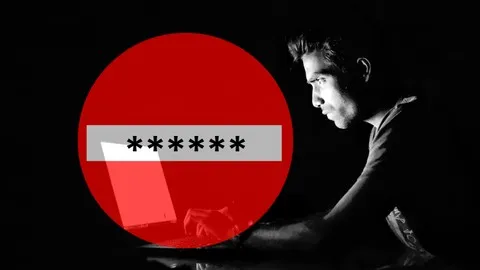
Free Identity Security Tutorial - Protect Your Online Identity with Great Passwords 
This free tutorial provides essential information on how to protect your online identity from hackers and identity theft. Learn how to create strong passwords and keep your data secure. ▼
ADVERTISEMENT
Course Feature
![]() Cost:
Cost:
Free
![]() Provider:
Provider:
Udemy
![]() Certificate:
Certificate:
No Information
![]() Language:
Language:
English
![]() Start Date:
Start Date:
Self Paced
Course Overview
❗The content presented here is sourced directly from Udemy platform. For comprehensive course details, including enrollment information, simply click on the 'Go to class' link on our website.
Updated in [April 29th, 2023]
This course provides an overview of identity security and how to protect your online identity with great passwords. Participants will learn about how identity theft occurs, how to determine if their identity has been stolen, and how to make robust passwords. The course will also cover the use of passes and why they are important, as well as how to use a password manager to secure passwords. Finally, the course will discuss why popular password managers are not as secure as many believe.
[Applications]
After taking this course, participants are encouraged to apply the knowledge they have gained by creating strong passwords for their online accounts and using a password manager to store them securely. They should also be aware of the risks of identity theft and take steps to protect their personal information. Additionally, they should be aware of the limitations of popular password managers and take extra steps to ensure their passwords are secure.
[Career Paths]
1. Cyber Security Analyst: Cyber security analysts are responsible for protecting an organization’s computer systems and networks from cyber-attacks. They monitor networks for security breaches, investigate suspicious activity, and develop security protocols to protect data. As the need for cyber security increases, the demand for cyber security analysts is expected to grow.
2. Information Security Manager: Information security managers are responsible for developing and implementing security policies and procedures to protect an organization’s data and systems. They also monitor security systems, investigate security breaches, and ensure compliance with security regulations. As the need for data security increases, the demand for information security managers is expected to grow.
3. Network Security Engineer: Network security engineers are responsible for designing, implementing, and maintaining secure networks. They monitor networks for security breaches, investigate suspicious activity, and develop security protocols to protect data. As the need for network security increases, the demand for network security engineers is expected to grow.
4. Identity Theft Investigator: Identity theft investigators are responsible for investigating cases of identity theft and fraud. They analyze data, investigate suspicious activity, and work with law enforcement to identify and prosecute perpetrators. As the prevalence of identity theft increases, the demand for identity theft investigators is expected to grow.
[Education Paths]
1. Bachelor of Science in Cybersecurity: This degree path focuses on the technical aspects of cybersecurity, such as network security, cryptography, and malware analysis. It also covers the legal and ethical aspects of cybersecurity, such as data privacy and compliance. The demand for cybersecurity professionals is growing rapidly, and this degree path is a great way to get started in the field.
2. Master of Science in Information Security: This degree path focuses on the management and leadership aspects of cybersecurity, such as risk management, incident response, and security policy development. It also covers the technical aspects of cybersecurity, such as network security, cryptography, and malware analysis. This degree path is ideal for those who want to move into a leadership role in the cybersecurity field.
3. Doctor of Philosophy in Cybersecurity: This degree path focuses on the research aspects of cybersecurity, such as developing new security technologies and analyzing existing security systems. It also covers the legal and ethical aspects of cybersecurity, such as data privacy and compliance. This degree path is ideal for those who want to pursue a career in academia or research.
4. Certificate in Identity Security: This degree path focuses on the fundamentals of identity security, such as understanding how identity theft occurs, how to determine if your identity has been stolen, and how to make robust passwords. It also covers the use of password managers and other security tools to protect your online identity. This degree path is ideal for those who want to gain a basic understanding of identity security.
Course Syllabus
Why Do You Need This Course?
Is This Class for You?
Identity Theft: The Fastest Growing Crime
How to Know If Someone Has Stolen Your Identity
What You Will Learn in This Course
Surviving an Online Attack
Would Your Passwords Survive an Online Attack?
How Do Hackers Get Your Passwords?
How Do Websites Protect Your Password?
Myths about Password Strength
How Strong Is Your Password? Can It Be Cracked?
More on Password Strength (for the Curious)
The Secret of Strong Passwords
What is a Passphrase?
Get a Passphrase
What is a Password Manager?
How Secure are Password Managers?
How to Use KeePass to Manage Your Passwords
Password Manager Tips and Tricks
Should You Write Down Passwords?
Pros & Cons

Very knowledgeable instructor.

Debunks myths promoted by other teachers.

In depth knowledge of the subject matter.

Helps change password view.

Provides great information on passphrases.

Need more bits in passwords.

No clear guidelines for improving passwords.

No Spanish language support.

Limited free course content.

No practical exercises.
Course Provider

Provider Udemy's Stats at AZClass
Discussion and Reviews
0.0 (Based on 0 reviews)
Explore Similar Online Courses

Swords and Shovels: Closing the Loop

Learn Google Apps Script: From Level Zero

Python for Informatics: Exploring Information

Social Network Analysis

Introduction to Systematic Review and Meta-Analysis

The Analytics Edge

DCO042 - Python For Informatics

Causal Diagrams: Draw Your Assumptions Before Your Conclusions

Whole genome sequencing of bacterial genomes - tools and applications

Ryan Montgomery - #1 Ethical Hacker Who Hunts Child Predators Catches One Live On Podcast SRS #56

Become Master in Ethical Hacking with Android (without Root)


Start your review of Free Identity Security Tutorial - Protect Your Online Identity with Great Passwords